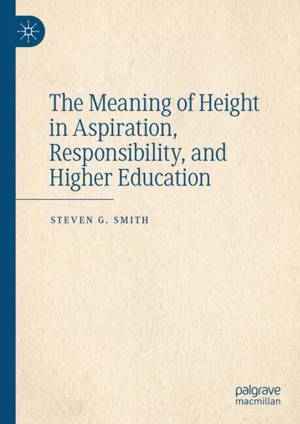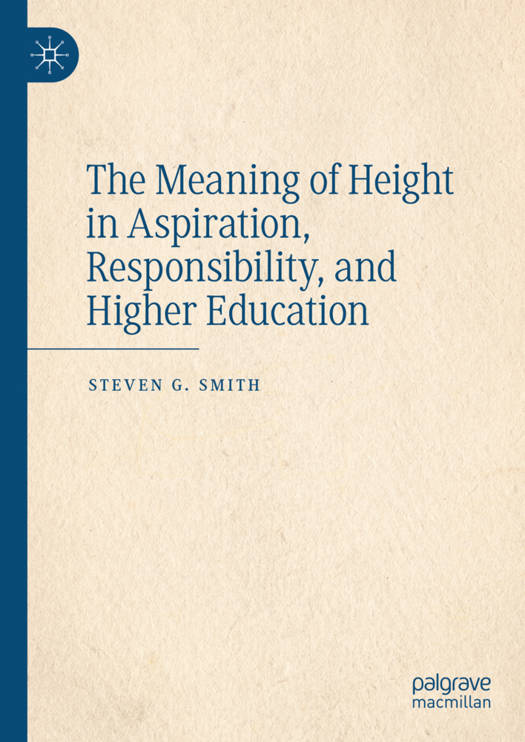
- Retrait gratuit dans votre magasin Club
- 7.000.000 titres dans notre catalogue
- Payer en toute sécurité
- Toujours un magasin près de chez vous
- Retrait gratuit dans votre magasin Club
- 7.000.0000 titres dans notre catalogue
- Payer en toute sécurité
- Toujours un magasin près de chez vous
The Meaning of Height in Aspiration, Responsibility, and Higher Education
Steven G SmithDescription
The Meaning of Height takes seriously the traditional figure of "higher life" for intrinsically preferable manners of living. Reworking the Platonic model of ascent to the ideal and descent to responsible engagement with the world, The Meaning of Height lays out concrete possible itineraries of reaching (upward to new acquisitions of personal capacity) and righting (downward from prompts for good order), showing connections between individual and social fulfillment. By focusing on our diversely demanding encounters with the interesting, the important, and the transcendent, the book strikes a counterpoint to the commonly homogenized conception of personal "happiness." It also counters illiberal views of higher education with a Humboldtian vitality argument for a meaningfully "high" higher education geared to full development of human faculties, a level of education to which the disciplines of philosophy and religious studies make essential contributions. The book concludes by considering the essential role of this sort of higher education in democratic societies.
Spécifications
Parties prenantes
- Auteur(s) :
- Editeur:
Contenu
- Nombre de pages :
- 226
- Langue:
- Anglais
Caractéristiques
- EAN:
- 9783031570766
- Date de parution :
- 30-06-24
- Format:
- Livre relié
- Format numérique:
- Genaaid
- Dimensions :
- 28 mm x 190 mm
- Poids :
- 408 g

Les avis
Nous publions uniquement les avis qui respectent les conditions requises. Consultez nos conditions pour les avis.






